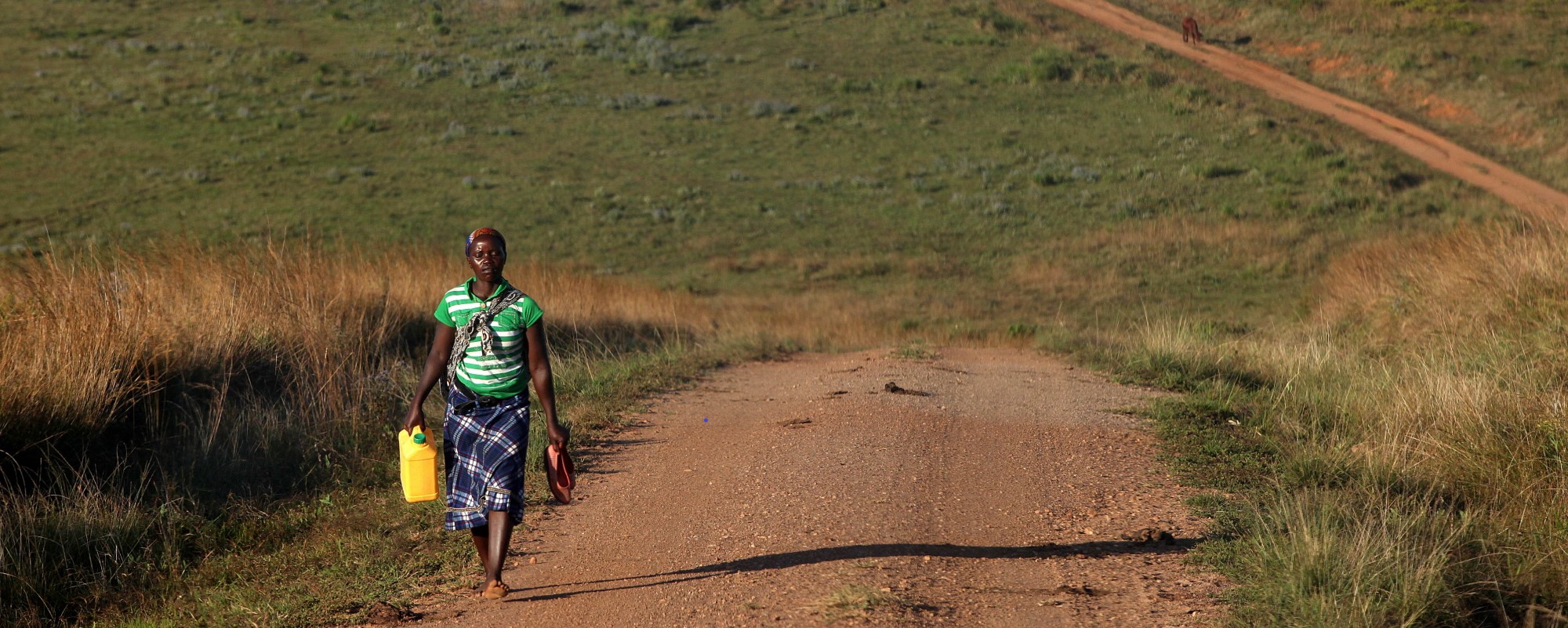Mozambique

Mozambique has several agro ecological zones with the central and northern regions having high agricultural production due to favorable weather and fertile soils, while the southern region is characterized by scarce rainfall and less fertile soils. Rainfed agriculture is the predominant production system and is the main source of income for most rural households, accounting for 70 percent of Mozambican economy and employs approximately 80 percent of the working population in Mozambique. Despite this, agricultural is caracterized by low productivity due to the low use of inputs such as improved varieties, inorganic fertilizers and pesticides, this combined with poor rural infrastructure which constitute leads to higher post – harvest losses, and a huge barrier for the development of the agriculture sector in Mozambique.
The country and, in particular, its agriculture sector are cyclically affected by frequent weather-related hazards, with the March 2019 cyclone Idai (category 3) in Center and April, 2019 cyclone Kenneth in North (category 4) being the most devastating which destroyed infrastructure along with more than five thousand hectares of cereal crops and losses of livestock in the central and northern regions of Mozambique. Often such weather-related hazards are a set back to the country economic growth path, with billions of US dollars in losses.
Through the “increasing water productivity for nutrition-sensitive agriculture and improved food security and nutrition” project, FAO in partnership with IFAD, intend to support the Government's five-year strategy for food security and nutrition, by building capacities of smallholder farmers on resilient agriculture production practices with the aim to improve yields, food and nutrition security and the overall livelihoods of smallholder farmers. In addition, the project will support the IFAD’s “Inclusive Agrifood Value Chain Development Programme (PROCAVA)” objective to contribute to poverty reduction, improved food and nutrition security and resilient livelihoods for inclusive rural transformation.
In Mozambique, the project is being implemented in collaboration with the Ministry of Agriculture and Food Security (MADER).Main activities
In Mozambique, the project is carrying out the following activities:
1. Country context assessment with the aim to map out specific needs and productivity constraints faced by smallholder farmers in the target districts (i.e. Ribaue and Erati in Nampula Province and Massinga and Govuro in Inhambane Province). This includes:
- Definition of selection criteria for the target areas and project beneficiaries through consultation meetings with the Ministry of Agriculture and Rural Development (MADER), IFAD, WFP and other partners.
- Field visit to the target districts for the official launch/introduction of the project to the local communities and authorities, site specific data collection and mapping/registration of the project beneficiaries, farmers organizations and traders.
- Validation workshop of the results of the field visit.
2. Baseline survey data collection, analysis and reporting in partnership with national implementation partners. This includes also the organization of dissemination and validation workshop for the baseline results.
3. Deployment of the project nutrition-sensitive water productivity (NsWP) methodological framework and guidelines and adjustment to the country context:
- Capacity building/training activities on the use of the NsWP methodological framework and guidelines that will be implemented in two phases: (i) training of trainers with a specific focus on how to implement the NsWP using Farm Field School (FFS) approach and (ii) training of project beneficiaries on the use of NsWP guidelines).
- Deployment/implementation of the NsWP methodology and guidelines through Farm Field School Approach.
Partners
Inclusive Agrifood Value Chain Development Programme (PROCAVA) Project.
The Inclusive Agrifood Value Chain Development Programme (PROCAVA) Project’s goal is to contribute to poverty reduction, improved food and nutrition security and resilient livelihoods for inclusive rural transformation. This will be achieved by targeting selected value chains including horticulture commodities, livestock, poultry, cassava and legumes.
Country team
Rogério Rafael National Project Coordinator, FAO Mozambique | Felicidade Panguene Programme Specialist, FAO Mozambique | ||
Olga Silva Operations Specialist, FAO Mozambique | Daniel Mate National Coordinator of the Inclusive Agri-Food Value Chain Development Programme (PROCAVA) |
Partners
Upcoming activities
The baseline survey will be conducted in Massinga, Govuro, Ribaue and Erati districts from mid-January 2022. Data collection will be conducted by the Universidade Eduardo Mondlane – Superior School of Rural Development (ESUDER) under the supervision of FAO and in partnership with IFAD and the Ministry of Agriculture and Rural Development.
More details will be shared soon…
